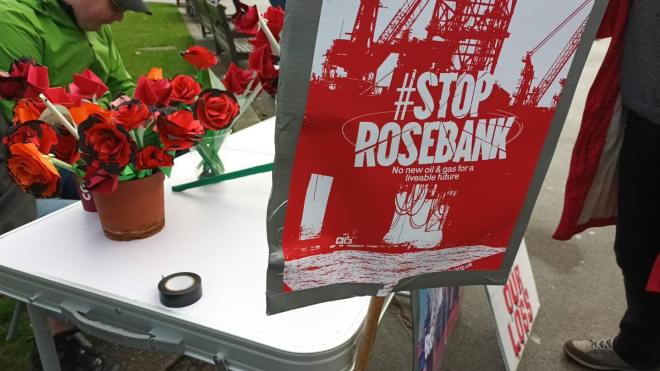
LOCAL organisations, charities and social enterprises have been left homeless due to water damage to the former Centrica building at 1 Waterfront Avenue.
The organisations lease space at Waterfront through Edinburgh Pallette, occupying floors 2 and three of the building.
Karen Black, founder and CEO of SHE Scotland, explained: “We were notified on 3rd January and it is unlikely to be fixed until next month at earliest! We have only today (Wednesday 10 January) been told we can only have limited access to small items and still no full access to our resources.

“You can understand this had impacted negatively on local services, delivery of services, moral of staff and volunteers. At this time when the pressure on funding, staff retention, cost of living impact and now the issue with space is causing a real strain to all of us.”
Among the organisations affected are:
- SHE Scotland
- Scran Academy
- Edinburgh Uniform Bank
- North West Carers
- Who Cares
- Project Esperanza
- Passion for Fusion
- Social Print
- Veterans Society
- Baby Bank
- Sharp Stuff
The affected organisations have written to Centrica:
We are writing on behalf of a number of Edinburgh charities and small voluntary sector companies who lease space in one of your sites – 1 Waterfront Avenue, Edinburgh. You may be aware that this site has had to close due to flooding in the basement of the building.
Fortunately, Centrica employees have been very quickly relocated to offices in another part of Edinburgh with little or no business interruption.
Unfortunately, the other businesses who lease the space who form the signatories of this letter – all low-income charities and community interest companies – have not been supported in the same way and many face business-critical disruption. We were advised on Friday 5th January that the building would be closed until the 31st January. No priority was given to ensure access to files or materials essential for continued business operation. In fact, it was not until one week later that we were finally advised that we could enter the building accompanied to collect small items.
This closure will cause all of these voluntary sector organisations considerable business interruption and possible loss of contracts. This will directly impact the support our organisations provide for local communities, as well as risking loss of income and reputation. Not only are there business delivery consequences to this but there is a substantial human cost. The stress on our staff and volunteers of finding out that their place of work has lost its’ operating base literally overnight is considerable.
Every tenant is now scrambling around trying to find alternative premises instead of focusing on core delivery. Delivery which is essential to the well-being of our local communities. The knock-on impacts of this are unmeasurable – businesses have been told they can have accompanied access to the building to collect ‘small items’. Where does that leave the Edinburgh School Uniform Bank, who store hundreds of uniforms to distribute to under-privileged school children or SHE Scotland who run workshops for young girls?
All these organisations have limited resources and rely on funding to survive so it is not a simple task to find alternative premises at short notice. We would like to advise you that we will be seeking compensation for business interruption and breach of lease obligations.
We feel we need to escalate this issue to a speedy resolution, and wish for Centrica to help our organisations, and the children, families and communities we support, to return to our space as quickly as possible.
We look forward to hearing from you.
Tenants of 1 Waterfront Avenue

Waterfront Avenue office accommodation and facilities are advertised on Edinburgh Palette’s website:
Waterfront Avenue provides flexible, open-plan office accommodation in the heart of North Edinburgh’s evolving Waterfront area. The building is located adjacent to the iconic Granton Gasworks, which is due to undergo renovation to be transformed into a tree-lined amphitheatre for cultural events.
Currently occupying floors two and three. Opening hours for the building are between 8:30am and 6pm Monday to Friday and closed on Saturday and Sunday. The building will also be closed on all public holidays.

Facilities include:
- Security access, in addition to security desk, and full intruder alarm
- Climate controlled heating and cooling
- Good quality toilet facilities
- Fully accessible with two passenger lifts and accessible toilets
- Access to One Waterfront Café on the ground floor, serving a selection of hot and cold food and drinks
- Numerous breakout areas, strategically located within the spacious open plan space
- Secure cycle parking
- On major bus routes: 24, 38, 47, 113, X37 & X47.
Buses 8, 14, 16, X29, N16 & Skylink 200 all stop on West Granton Road which is a short 6-minute walk
























